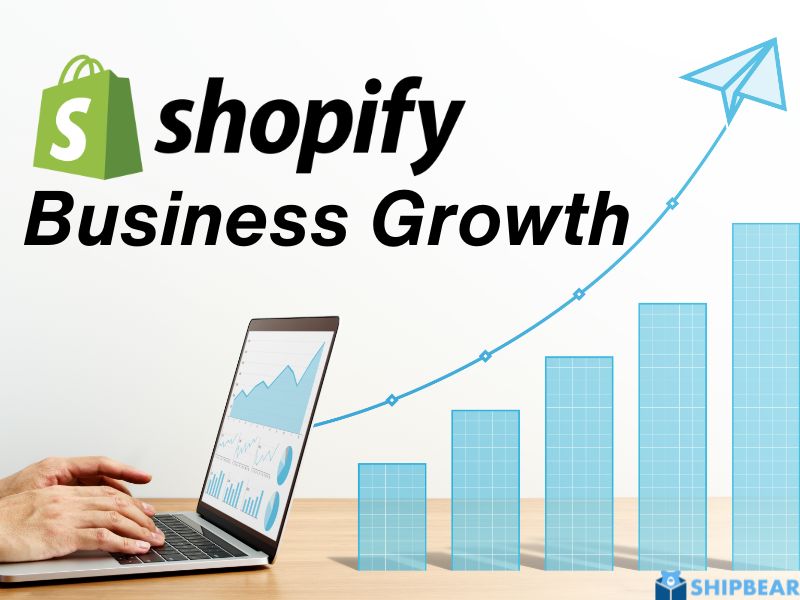Are you ready to take your Shopify business to the next level? Want your online store to become a major player in its market niche?
You’ve come to the right place! In this blog post, we will provide seven fast and effective strategies that you can use to scale your Shopify store quickly.
Whether you already have an established dropshipping business or are just getting started, these tips and tactics will help you elevate your sales, grow customer relationships, and increase revenue. So let’s get right into it!
1. Shopify Plus
Shopify Plus is an enterprise version of the popular ecommerce platform, Shopify.
It is designed for high-volume merchants who require advanced features and customization options to effectively manage their online stores.
With Shopify Plus, you have access to dedicated support, unlimited bandwidth and storage, as well as powerful integrations with third-party apps. This solution can help you scale your business by providing a reliable and stable platform for your growing needs.
2. Utilize Shopify Plugins and Apps
Shopify has a wide variety of plugins and apps that can enhance the functionality of your store.
From marketing and sales to inventory management and fulfillment, there is an app for almost every aspect of running an ecommerce business. Here are just a few:
- OptiMonk – A conversion optimization tool that helps capture more leads and increase sales.
- ReferralCandy – An app that allows you to easily set up and manage a referral program for your store.
- Yotpo – A customer review and rating platform that can boost social proof and drive more sales.
- Recart – A Facebook Messenger marketing and cart abandonment recovery app.
- Printify – A print-on-demand service that lets you create and sell custom products.
- Cartloop – A personalized SMS marketing platform that can help recover abandoned carts and engage customers.
3. Launching Your Own Private Label Brand

If you’re looking to stand out from the competition and build a loyal customer base, consider launching your own private label brand.
This involves creating and branding your own products instead of just selling other companies’ products through dropshipping.
Not only does this give you more control over the quality and image of your products, but it also allows you to differentiate yourself in a crowded market.
Shipbear can help you with every step of the private label process, from sourcing and manufacturing to branding and fulfillment.
4. Invest in SEO
Search engine optimization (SEO) is crucial for driving organic traffic to your Shopify store.
By optimizing your website for keywords and implementing other SEO tactics, you can improve your visibility in search engine results pages and attract more potential customers.
Consider hiring an experienced SEO specialist or utilizing online resources to help you optimize your store.
5. AI Marketing Automation
If you’re tired of being bogged down by manual, repetitive tasks, implementing automation tools could be the answer you’re looking for. These tools can streamline your operations and significantly reduce the amount of time you spend on manual labor.
Chatbots, sentiment analysis, virtual assistants, generative tools , and other AI-powered marketing automation software can help you personalize your customer communications, improve efficiency, and ultimately increase sales.
6. Selling on Multiple Channels
Don’t limit your sales potential by only selling on your Shopify store.
Expand your reach and increase brand awareness by selling on various channels such as Amazon, eBay, Instagram, Facebook Marketplace, and more. These platforms have built-in audiences that you can tap into to increase your customer base and drive more sales.
Utilize e-commerce integration software to seamlessly manage inventory and orders across multiple platforms.
7. Ecommerce Funding Options for Growth
If you’re serious about scaling your Shopify store, you may need additional funding to support your growth strategies.
Consider options such as small business loans, crowdfunding, or angel investors.
Shopify has its own funding program called Shopify Capital, which offers loans based on your store’s sales history and performance.
Other funding options can include personal loans, business credit cards, or even bootstrapping your growth with profits from your store.
8. Influencer Marketing

In today’s world, there’s no denying the power of social media influencers. These digital stars have a unique ability to connect with their audiences and create a sense of trust and authenticity.
By partnering with relevant influencers in your industry, you have the opportunity to tap into their engaged fan base and build relationships with key players.
Not only can influencer marketing help you reach a larger audience, but it also allows you to gain insights into your target market’s preferences and behaviors
. By understanding what resonates with your audience, you can tailor your marketing strategies and messaging to better connect with them on a personal level. So, don’t be afraid to explore the world of influencer marketing and see how it can elevate your brand and engagement with your target audience.
9. Continuously Test and Optimize
Last but not least, always be testing and optimizing your store to ensure its success.
Experiment with different marketing strategies, pricing models, website layouts, and product
Research and compare different funding opportunities to determine which one is the best fit for your business.
Takeaways
At the end of the day, growing your Shopify store requires a combination of strategic planning, continuous improvement, and willingness to try new things.
By implementing these seven fast and effective strategies, you can elevate your store’s success and take it to new heights.
Remember to always keep your customers in mind, stay informed on industry trends, and be open to adapting your strategies as needed.



